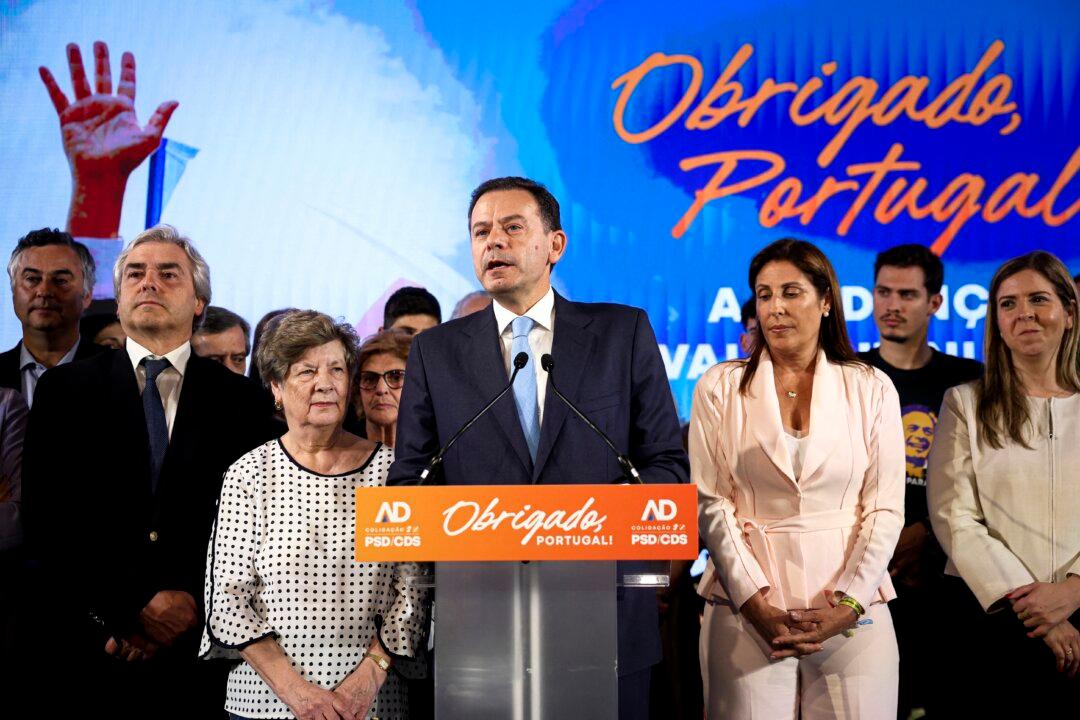Portugal’s incumbent Democratic Alliance, led by Prime Minister Luís Montenegro, won the most votes in the May 18 general election but failed again to secure a parliamentary majority.
Election results showed the center-right Democratic Alliance had secured 32.1 percent of the vote, followed by the Socialist Party at 23.4 percent and the conservative populist party Chega with 22.6 percent.





